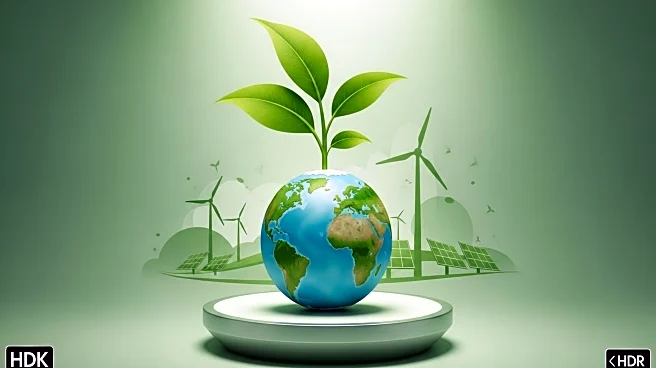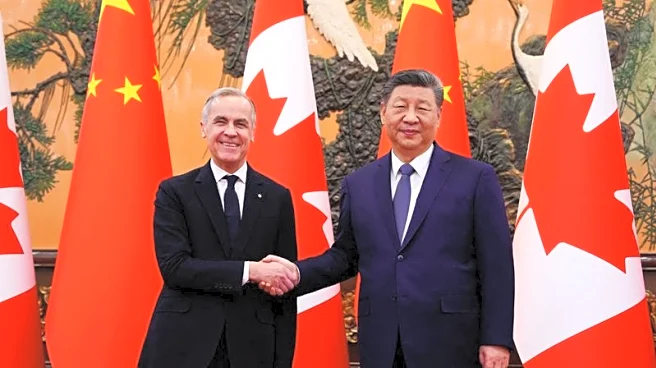What is the story about?
What's Happening?
China has announced plans to reduce its greenhouse gas emissions by 7-10% by 2035, marking a shift from previous commitments to slow emissions growth. President Xi Jinping's announcement at the UN General Assembly highlights China's strategy to increase non-fossil fuel energy consumption and expand renewable energy capacity. Despite the modest targets, China is expected to exceed its goals, as it has done in the past. The announcement comes as countries prepare to unveil their climate action plans at the COP30 summit in Brazil.
Why It's Important?
China's role as the world's largest emitter of greenhouse gases makes its climate commitments crucial for global efforts to limit temperature rise. The modest reduction targets have raised concerns about China's leadership in climate action, potentially impacting global markets and multilateral climate agreements. While China has a history of exceeding its targets, the current plans may not align with the urgent need for significant emission cuts to prevent severe climate impacts. The COP30 summit will be a critical platform for countries to address these shortcomings and strengthen their commitments.
What's Next?
The upcoming COP30 summit in Brazil will be a pivotal moment for countries to present stronger climate action plans. The UN and participating nations will need to demonstrate how inadequate national targets can be improved to meet the Paris Agreement's goals. China's commitments will be closely scrutinized, with expectations that it may exceed its targets, as it has done in the past. The summit will also focus on setting a global plan to address the climate crisis effectively.
Beyond the Headlines
China's announcement reflects a broader challenge in balancing economic growth with environmental sustainability. The country's reliance on coal and the political support for coal power pose significant hurdles in transitioning to cleaner energy sources. The global community will be watching China's actions closely, as its decisions will influence other nations' climate policies and the overall success of international climate agreements.

















